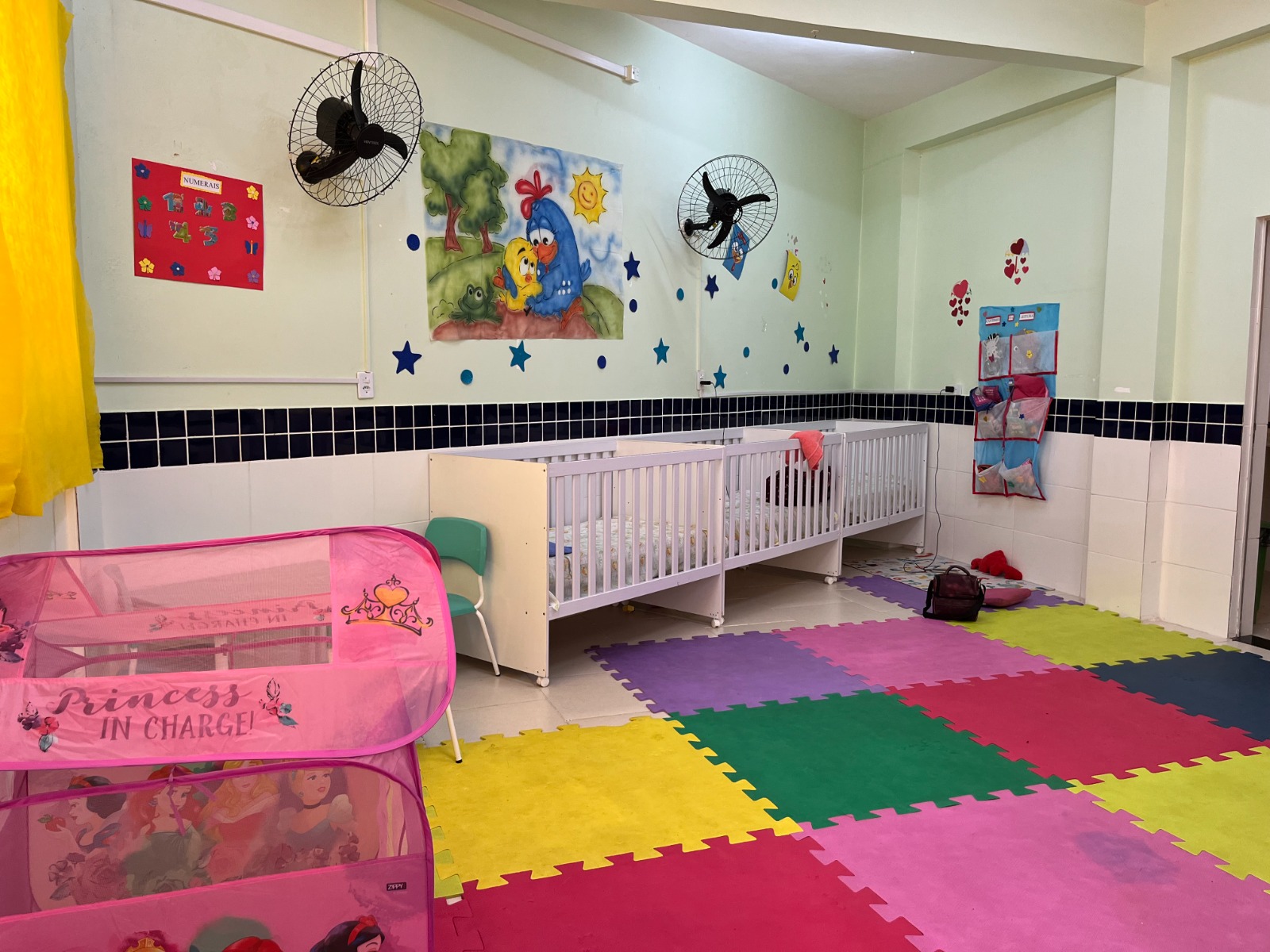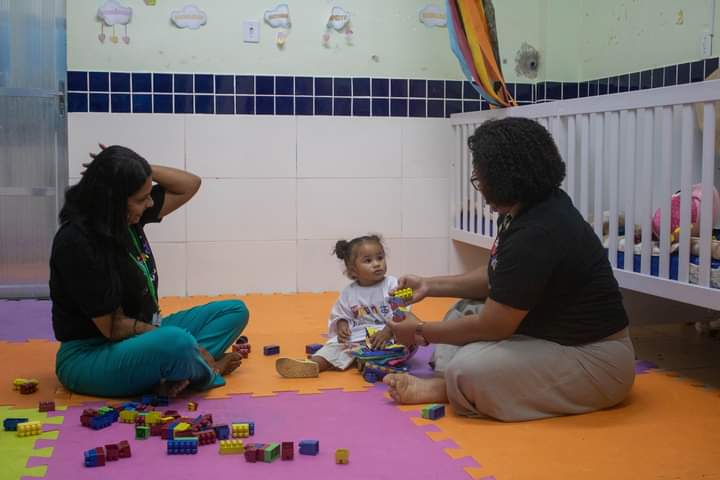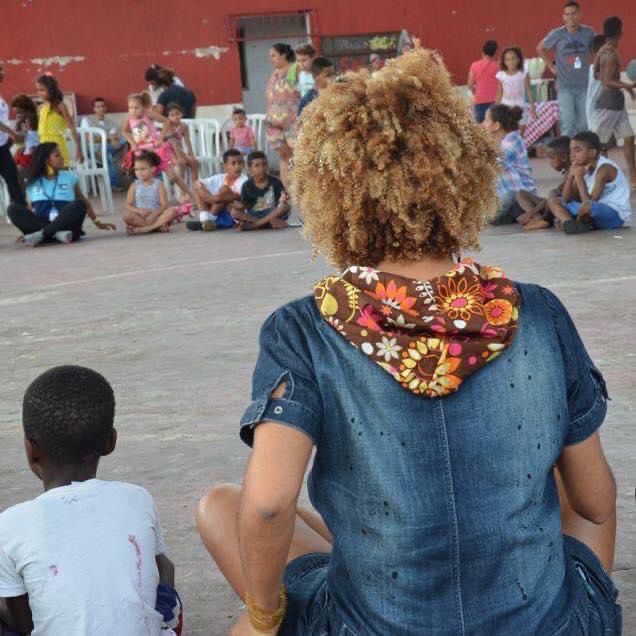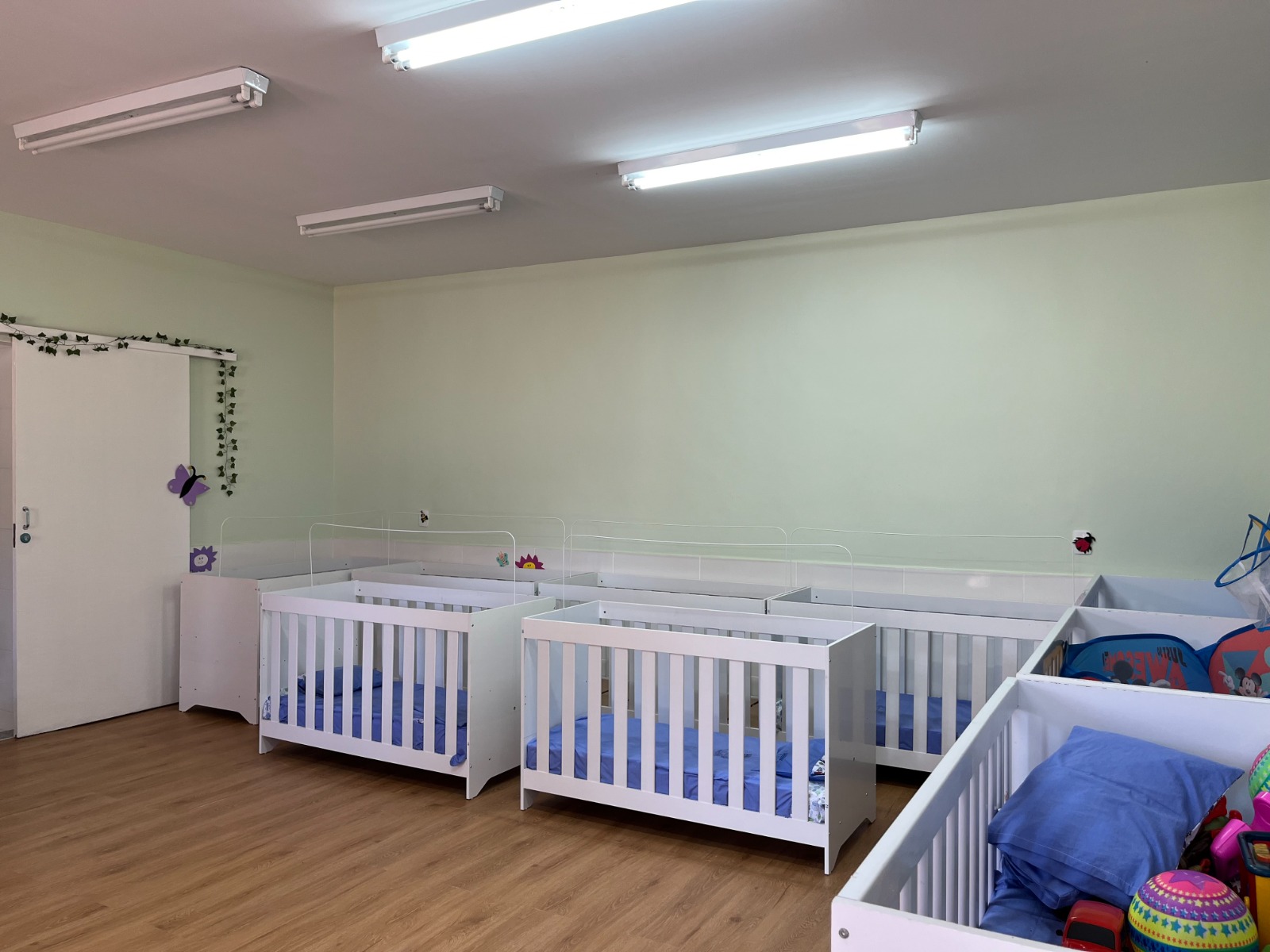
Clique aqui para Português
March 14, 2024—This Women’s History Month, on the sixth anniversary of Marielle Franco’s political femicide, this article explores Marielle’s parliamentary legacy through a policy implemented by the municipality of Maricá. The initiative, known as the Little Owls Project, offers hope, particularly for women, single mothers in the city, situated in Greater Rio’s Eastern Region, to the east of the Guanabara Bay. During her term, Councilwoman Marielle Franco, together with Councilman Tarcísio Motta, drafted Law 6.419/2018, known as the Owl Space Law, to provide care for children of couples, single mothers, and fathers who study or work at night, outside of their children’s school hours, and have no one with whom to safely leave their children. The law has yet to be implemented in Rio de Janeiro where it was first passed. But it has inspired nearby Maricá.
The Owl Space: A Legacy from Marielle Franco

Balancing studies, work, and childcare is a real challenge for many, especially Black women, mothers living in favelas and peripheries. The pursuit of a better future, such as a higher-paying job or a degree, is hindered by the difficulty of finding a safe and reliable place to leave children while they are at work, school, or college. For the majority of young people and adults, studying isn’t just about hitting the books. Similarly, for Black mothers, working involves much more than securing a job. They need familial backing, a support network, and initiatives from the government to avoid dropping out of school because the first concern is who will look after the children? This is a common reason for school drop-outs, especially for Black women, who stop studying or working to mother their children.

Iconic Rio councilwoman Marielle Franco, killed in a shattering political assassination six years ago today, centered her parliamentary career around addressing this question. A single Black mother from the favela herself, born and raised in the Complexo da Maré, in the North Zone of Rio, Marielle often spoke about how her success was due to the ability to rely on family support to pursue her studies and work, knowing she could leave her daughter, Luyara, in safe hands with family during the day. Marielle’s sister Anielle Franco, now Minister of Racial Equality, helped her understand the importance such a support network.
It was no accident then that, when taking office as councilwoman for the city of Rio de Janeiro, in 2017, during the first days of her term, Marielle filed Bill 017/2017, the Night Space Program for Early Childhood Care. This entire process was outlined in the book Owl Space: For the rights of children and women. Legislator Marielle Franco. However, almost six years after it was approved by the Rio de Janeiro City Council, the law still awaits implementation. Approved on November 14, 2018, the Owl Space Law awaits regulation and budget allocation for implementation in Rio de Janeiro.
A Dream Fulfilled for Marielle and Families who Study and Work at Night
Meanwhile, in the nearby municipality of Maricá, Marielle’s idea is already offering opportunities for inclusion in the labor market, in schools and universities particularly for the country’s largest demographic: Black women.
In response to a request from a group of university students who are mothers in Maricá, voiced in March 2022, who had been prevented from attending evening classes with their children, Councilman Danilo Santos drafted the bill for the Little Owls Program. This bill was approved in November 2022 and became Law 3264/22, formally establishing the program, which was implemented starting July 24, 2023, when the Maricá Municipal Secretariat of Education published Resolution 11, setting the program in motion. In August 2023, the Little Owls Project began operating. Currently, the program serves 120 families, with plans to expand its capacity, according to data from the Maricá Education Secretariat.
“We started this program to offer a space with children’s activities, so that mothers, fathers, and guardians can carry out their professional or academic activities. Sometimes the father or mother wants to start a job or a course at night and has no one to leave their child with. This will give the guardian the peace of mind needed to study because their child will be well cared for and supported by our multidisciplinary teams.” — Márcio Jardim, Maricá Secretary of Education

The Secretariat of Education states that, to be eligible for a spot, the guardian must have their child enrolled in a school in Maricá and prove that they study or work at night. The program is intended for children from the age of one to ten years old and registration is done online. To accommodate these students, the Secretariat provides spaces in two educational units: the Professora Ondina de Oliveira Coelho Municipal Center for Early Childhood Education (denominated CEIMs) and the Professora Romilda dos Santos Municipal School, each with 60 vacancies. These facilities already have all the necessary infrastructure and qualified professionals to care for small children.
CEIM is located in the Flamengo neighborhood, in the center of Maricá. The unit accommodates approximately 60 children aged three to five, and according to deputy director Angélica Machado, is able to accommodate more children if the number of vacancies increases. She mentioned that this space only caters to children in this age group due to the structure of the location, which operates as a preschool during the day.
Machado described the impact that the Little Owls Program has already had on women’s lives.
“It’s made a very deep and significant impact because mothers now have someone and a place they can trust to leave their children. We have a student with disabilities; he is autistic, and the mother didn’t have anyone to leave him with on a day-to-day basis. She used to leave him with a neighbor or a relative every day. The project was important for her because she knew her son was safe… even regarding autism itself. He had a few crises, and leaving him with a neighbor, with someone who doesn’t understand, must have been quite painful for her. So, it was a very important and profound impact for them, to know that their children are in a safe, well-structured space, and are being cared for.” — Angélica Machado
At the Romilda Santos Municipal School, located in the Pedreiras neighborhood, its deputy director, Silvia Teixeira, mentioned that the school’s space was already prepared to receive the Little Owls Program. The school welcomes children from just under two to ten years old for the project’s evening program. The facility has common areas, a nursery, and a spacious courtyard.

For now, there are still few children enrolled in the Little Owls Program. The teachers believe that this is because it is a new program, and many are unaware of its existence. For this reason the Maricá City Hall has been investing in promoting the program and is already planning to expand the number of vacancies to 300.
Teixeira reported that when she was invited to work on the project, she was a bit concerned, imagining that she would face the same problems as during daytime hours, such as parents being late to pick up their children and absences. However, when she saw the project in practice, she was elated. It was only then that she realized how much Little Owls is truly a necessary policy for many people.
“I’ve been a teacher here in Maricá for 16 years, and when I heard about Little Owls, I thought it was insane because, as it was, in regular school, we had negligent parents, absent parents, parents who didn’t have a specific time to pick up their children, who didn’t have basic responsibility. So, hearing about Little Owls was something like… a bit scary and distant. But, I ended up face to face with a completely different reality, with parents who were filled with joy at having a place that is responsible, an environment that has healthy food, which is really cool, because the kids have dinner, a snack, and at the end, they even have fruit… The children play happily… in an environment where parents can trust the space and the teachers, it’s a blessing, isn’t it?” — Silvia Teixeira

In the Little Owls Program, children receive special care so they feel truly taken in by the schools, since they are in a different time frame than usual. Physical Education teacher Ranyelle Fernandes talks about the interaction of the children who participate in Little Owls. Even though the program operates at night and in this era of technology, surprisingly, the little ones prefer playful, physical activities, like games, and running around, rather than being glued to screens. She says she always tries to introduce them to old-fashioned games like jump rope, marbles, and “Escravos de Jó” (a traditional Brazilian game). According to her, the children react with great enthusiasm because some of them were not familiar with those games. Fernandes also tells us that, besides games, there are other activities such as dance, theater, and Little Owls Cinema. She made a point of stating that, in her view, the project is not only important for mothers and fathers but also for the children. They now have an environment with specialized professionals, that is healthy, stable, safe, stimulating, and suitable for nighttime reception.
This view from the staff is confirmed by the guardians of the benefited children. For Daniel Machado, father of a Little Owls Project student, and Alessandra Santos, mother of another student, the Maricá program is of enormous importance and greatly facilitates their lives. Both reported that, without the program, they would not be able to carry out their nighttime activities. Both Machado and Santos learned about Little Owls through their children’s school, which circulated a notice to guardians about the new project.
“The program was excellent for me! Both my wife and I work at night. Being able to leave my daughter [at Little Owls] was fantastic. Before, I had to give up my other job because I had to stay home with her. I work at two places and had to give that up because my wife has a formal job and couldn’t stay home. So, I had to work in only one place [which decreased my income], because I had to come back home to stay with her starting at 5pm. Now, I can make extra income at night.” — Daniel Machado
For Alessandra Santos, Little Owls is of utmost importance and makes all the difference. She and her husband attend college at night through another city program called University Passport. Santos is the mother of two and, according to her, doesn’t have a support network. Without Little Owls, studying would be impossible.
“I saw this as an opportunity to go back to school. My husband was already studying, he actually just graduated, thanks to the University Passport. And I wanted to go back to studying, to go to college as well… So I saw this as an opportunity to leave the children in a safe place, which is school, and go back to school myself… Little Owls provided me with this support network to return to studying.” — Alessandra Santos
Having a support network makes all the difference in achieving dreams, in seeking better opportunities. And, if in the city of Rio de Janeiro Marielle Franco’s bill has not yet come to fruition, benefiting those who greatly need this initiative, the city of Maricá has taken the lead. The success of the Little Owls Project only shows how public policies aimed specially at single mothers can change the lives of entire families and, in the long run, impact a city’s economy.
About the author: Carla Regina Aguiar dos Santos was born and raised in Morro do Turano. Her work as a community journalist has always prioritized the day-to-day happenings in the favelas. Reporting what goes on beyond the view of traditional media, she has contributed to the Favela News Agency (ANF), A Pública, Eu, Rio! and Terra. She received the ANF Award for journalism in the culture category and the Neuza Maria Award for Journalism.
